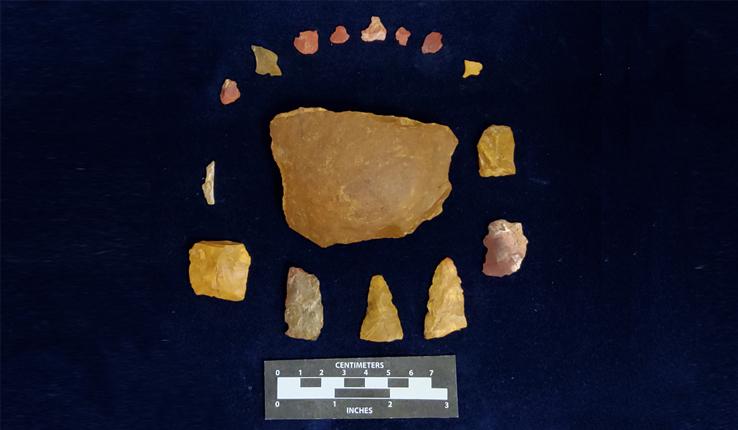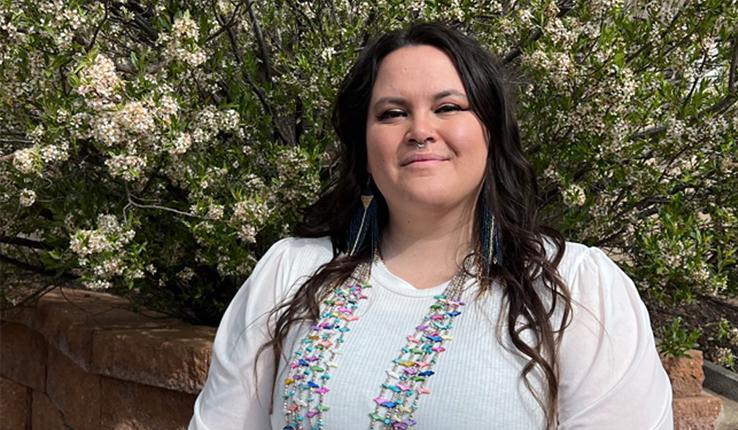Several faculty in the College of Health have been awarded federal, state and Lehigh grants to continue their research into a host of health concerns that include building probabilistic forecasts of influenza and studying the possible need for a pediatric palliative care program in the Lehigh Valley, Pa., area. Additionally, the College’s Institute for Indigenous Studies has been awarded new grants, including to improve pandemic preparedness among Native communities.
“This is an impressive sign of growth for the research arm of the College of Health,” said interim College of Health Dean Beth Dolan. “Our faculty continue to do important work in striving to improve the health of populations in the Lehigh Valley, in Pennsylvania and across the U.S.”
Among the awards:
Hyunok Choi, an epidemiologist and associate professor, received a $82,982 grant from the Pennsylvania Department of Health for a project that proposes to provide evidence for developing remediation policies against fossil fuel burning to protect children worldwide.
Choi and her collaborators recently demonstrated that early-life exposure to fossil fuel-emitted air pollution independently contributes to a discrete sub-species of asthma. In recruiting and training a diverse group of students, the new project aims to build a Pennsylvania-focused research infrastructure by compiling and harmonizing multiple streams of secondary data.
Thomas McAndrew, assistant professor, was awarded a $149,996 grant in collaboration with the Centers for Disease Control (CDC) and the Council of State and Territorial Epidemiologists (CSTE) to support his work on building probabilistic forecasts of influenza using human judgment. McAndrew also was awarded a $90,000 subcontract from the University of Massachusetts-Amherst to assist the ongoing work of the Influenza Forecasting Center of Excellence there. With the CDC funding, McAndrew and his colleague Nicholas Reich, of the University of Massachusetts-Amherst, will continue to build a more robust method of combining computational forecasts of influenza, which account for changes in past reported influenza data, missing computational forecasts and correlation in forecasts present in individual “component” models.
Sean Daley, associate professor, was awarded a Reemergence Grant from the Lehigh Office of the Vice President for Research and Graduate Studies. The grant program provides seed funding for exploration of a new direction or research interest. Daley is collaborating with Dr. Robert Miller, a pediatric pulmonologist at the Lehigh Valley Reilly Children’s Hospital in Allentown, Pa., in working with parents of children who have medical complexities and their healthcare providers in the Lehigh Valley Health Network to determine if a Pediatric Palliative Care program is needed, and if so, the next steps to start the process of developing a program.
Michael Gusmano, associate dean for academic programs and professor, received two grant awards since joining the College of Health in August. Gusmano received a $591,341 subcontract from The Hastings Center. Gusmano will lead a four-year research study that aims to identify appropriate ethical and policy guidance for translational xenotransplantation kidney clinical trials, or studies that connect basic research with clinical practice. The prime awarding agency is the National Center for Advancing Translational Sciences of the National Institutes of Health.
With input from an advisory committee composed of translational scientists, transplant clinicians, transplant policy experts and human subjects research experts, the research team will develop up-to-date ethics and policy recommendations and decision aids for transplant candidates, transplant clinicians and institutional review boards that will review xenotransplantation clinical trial protocols.
The Institute for Indigenous Studies (IIS) received a new community engagement award from Patient-Centered Outcomes Research Institute (PCORI) in the amount of $197,559. The project aims to improve pandemic preparedness of Native communities through community-led activism and engagement with researchers. The project will involve community stakeholders in Native communities around the country.
The award continues work done through a previous PCORI community engagement award, during which the Institute team developed culturally and linguistically appropriate educational materials about COVID-19; collected information on knowledge, attitudes, beliefs, and behaviors surrounding the pandemic; and examined tribal policies for COVID-19 prevention in their communities. The new project, which began in November 2021, focuses on understanding the mental health and community impact of COVID-19 among Native people through community conversations and surveys in order to develop community working groups to create change and pandemic preparedness in their communities.
Christine M. Daley, professor, was supported by a Research Scholar Grant from the American Cancer Society. The Institute for Indigenous Studies was awarded the nearly $1.8 million to test the efficacy of a culturally tailored program aimed at reducing American Indian smokeless tobacco use. The project will include Christine M. Daley, principal investigator and chair of the Department of Community and Population Health; and co-investigators, Sean Daley, Institute director; Thomas McAndrew, assistant professor and computational scientist; IIS senior research scientist Jason Hale, and IIS senior research scientist Charley Lewis. The research team also includes Ryan Goeckner, Jordyn Gunville and Luke Swimmer. The project, which began in July 2021, focuses on multi-tribal American Indian communities in urban locations that face disparities related to greater exposure to toxic chewing tobacco and high poverty rates, coupled with low access to care.





